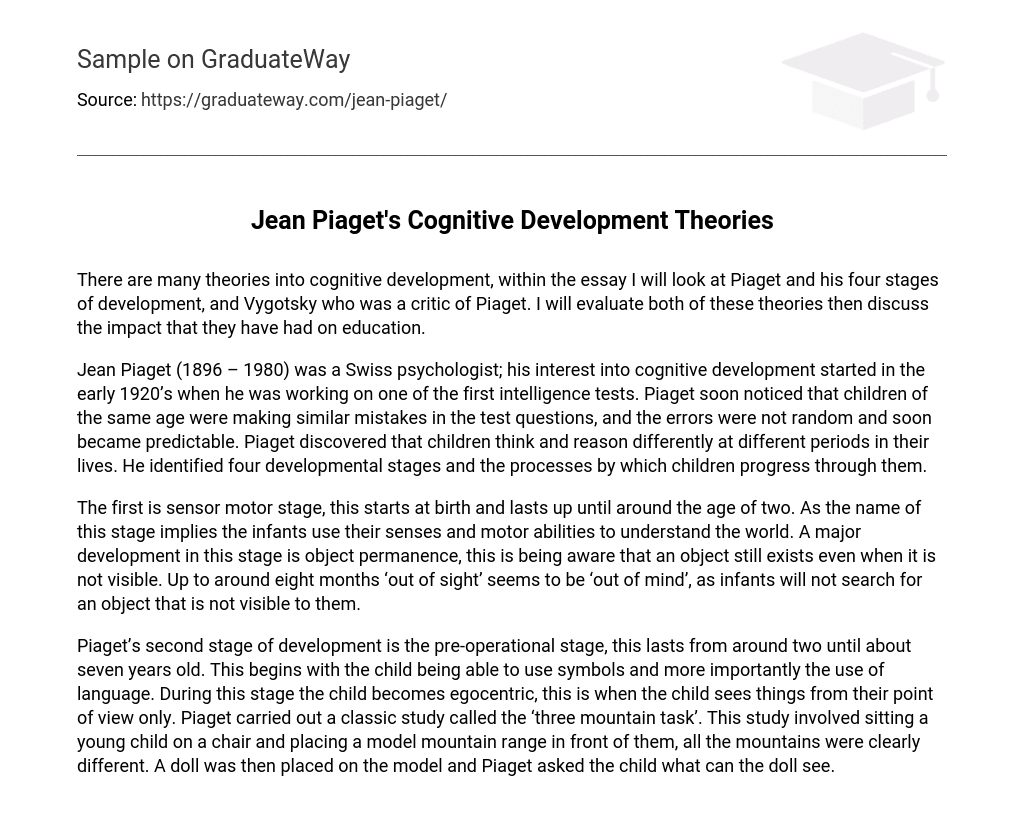There are many theories into cognitive development, within the essay I will look at Piaget and his four stages of development, and Vygotsky who was a critic of Piaget. I will evaluate both of these theories then discuss the impact that they have had on education.
Jean Piaget (1896 – 1980) was a Swiss psychologist; his interest into cognitive development started in the early 1920’s when he was working on one of the first intelligence tests. Piaget soon noticed that children of the same age were making similar mistakes in the test questions, and the errors were not random and soon became predictable. Piaget discovered that children think and reason differently at different periods in their lives. He identified four developmental stages and the processes by which children progress through them.
The first is sensor motor stage, this starts at birth and lasts up until around the age of two. As the name of this stage implies the infants use their senses and motor abilities to understand the world. A major development in this stage is object permanence, this is being aware that an object still exists even when it is not visible. Up to around eight months ‘out of sight’ seems to be ‘out of mind’, as infants will not search for an object that is not visible to them.
Piaget’s second stage of development is the pre-operational stage, this lasts from around two until about seven years old. This begins with the child being able to use symbols and more importantly the use of language. During this stage the child becomes egocentric, this is when the child sees things from their point of view only. Piaget carried out a classic study called the ‘three mountain task’. This study involved sitting a young child on a chair and placing a model mountain range in front of them, all the mountains were clearly different. A doll was then placed on the model and Piaget asked the child what can the doll see.





